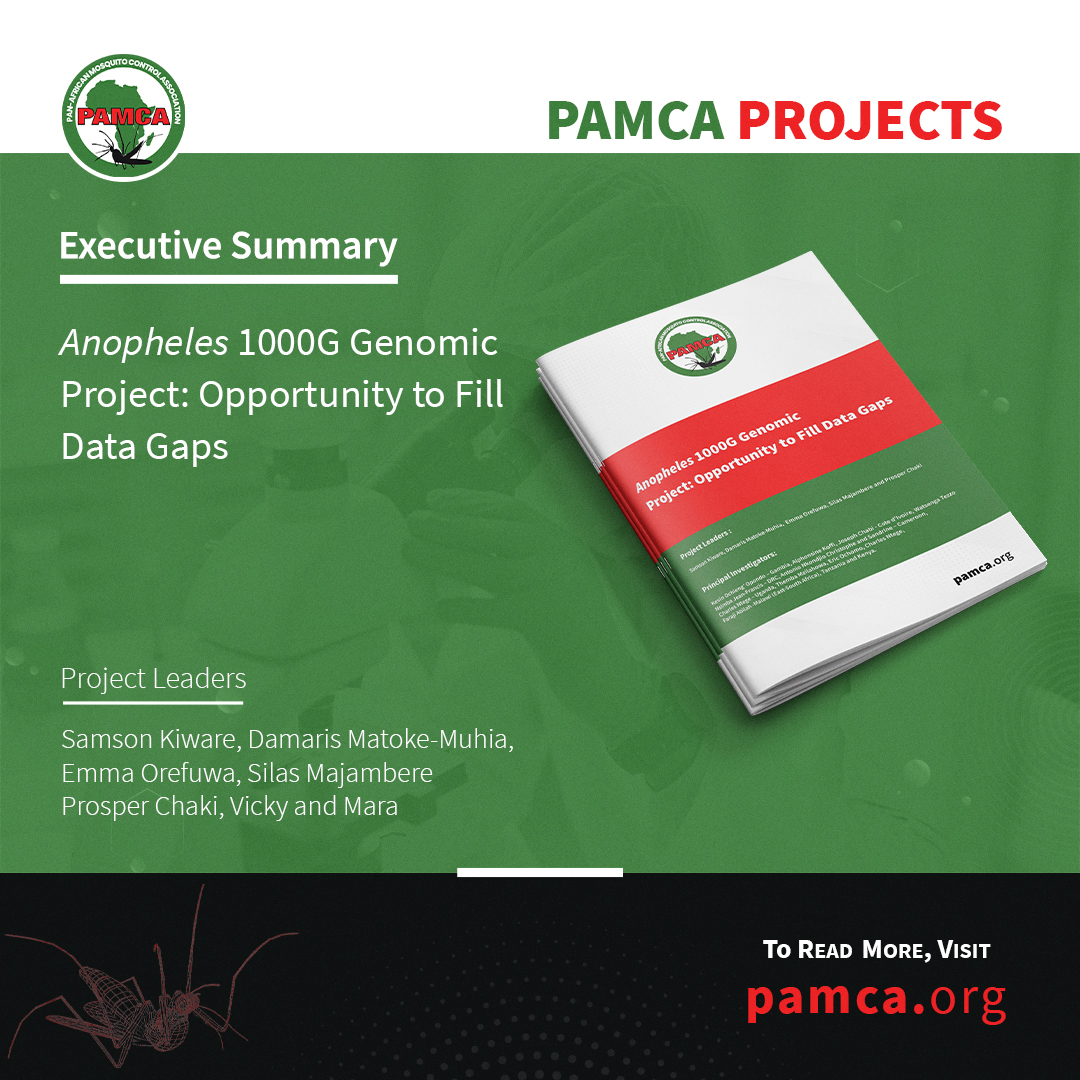Project Title : Anopheles 1000G Genomic Project: Opportunity to Fill Data Gaps
Start Date: 2021-06-01
End Date: 2023-06-01
Institution
Team
Principal Investigators:
Givemore Munhenga - South Africa, Luna Kamau- Kenya, Mbanga Muleba – Zambia, Kevin Ochieng’ Opondo – Gambia, Alphonsine Koffi, Joseph Chabi - Cote d’Ivoire, Watsenga Tezzo Nsimba Jean-Francis – DRC, Antonio Nkondjio Christophe and Sandrine – Cameroon, Charles Ntege – Uganda, Themba Mzilahowa, Eric Ochomo, Charles Ntege, Faraji Abilah -Malawi (East-South Africa), Tanzania and Kenya.
Funding
https://www.pamca.org/en
Executive Summary
Malaria elimination in Africa requires complementary new tools that can be used alongside existing ones, such as LLINs, to rapidly crash malaria vector populations and malaria transmission. Genetical biocontrol approaches, such as the use of gene-drive mosquitoes for population suppression or replacement offer potential high-impact interventions to achieve this goal. However, successful implementation of such interventions will require improved understanding of the genetic diversity of the common malaria vectors, and the gene-flow dynamics across regions. While significant successes have already been achieved for Anopheles gambiae s.s. populations in Africa, genetic diversity in the other important vectors have not been fully elucidated. This includes the lack of essential information on the genetic diversity and gene-flow patterns in Anopheles funestus, and other species such as Anopheles arabiensis and Anopheles coluzzii, which are also major vectors across Africa. Though advancement in high throughput next generation sequencing technologies (NGS) already allow for acquisition, storage and analysis of such data, there are still limitations on data acquisition, andaccess to wild-caught field samples from across Africa to be able to achieve this. One way to address this gap is to form networks across African institutions, with complementary expertise and geographical presence in countries with
different levels of malaria endemicity to support this initiative. This phase I of the project is conducted jointly in partnership with Wellcome Sanger Institute (WSI) and the MalariGEN (UK), who are providing the sequencing facilities, and the processing of sequenced data to generate analysis-ready data and avail them to the principal investigators (PIs) drawn from different parts of Africa.The project aims to develop a new program that brings together different African institutions working on vector control, and with expertise in medical entomology and genetics, to synergize genomic genomic surveillance efforts, by participating in an expanded network for continent-wide sampling and genetic analysis of common malaria vector species. The project will support field sampling of mosquito for genomic surveillance, collation, and curation of essential genomic data on species diversity and gene flow in malaria transmitting Anopheles mosquitoes across Africa.

